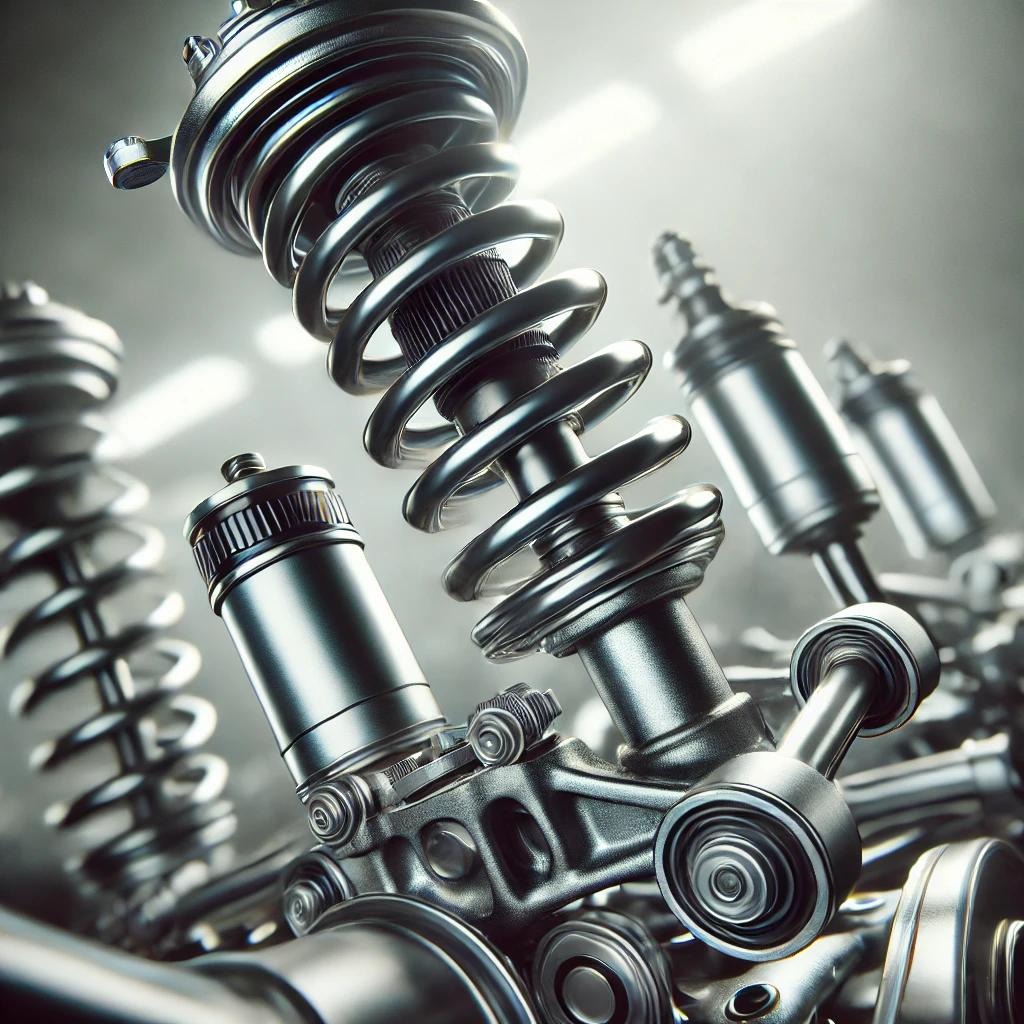Why Suspension Issues Get Worse in Cold Weather
Why Suspension Issues Get Worse in Cold Weather
When winter arrives, your car’s suspension system is put under extra strain due to freezing temperatures, potholes, road salt, and wet conditions. These factors can accelerate wear on shock absorbers, coil springs, bushings, and other suspension components, making it more likely for problems to develop.
At Andrews Car Centre in Lincoln, we see a rise in suspension-related issues during the winter months, often caused by the harsher road conditions. In this article, we’ll explain why cold weather worsens suspension problems, the most common issues that arise, and how you can protect your suspension system during the winter months.
How Cold Weather Affects Your Suspension System
The suspension system is designed to absorb shocks, keep your tyres in contact with the road, and ensure a comfortable ride. However, winter conditions make it work much harder, leading to faster wear and potential failures.
Here’s how cold weather impacts your suspension:
1. Increased Pothole Damage
🚗 The Problem:
- Winter freezing and thawing cycles cause potholes to form as water seeps into road cracks, freezes, and expands, breaking up the surface.
- Hitting potholes at speed puts excessive force on your suspension, potentially causing:
- Bent or broken coil springs
- Damaged shock absorbers
- Misaligned wheels
🔧 Prevention Tips:
✔️ Drive slowly over potholes or avoid them if possible.
✔️ Check for damage after driving on rough roads.
✔️ Have a wheel alignment check if you notice your car pulling to one side.
2. Cold Weather Stiffens Suspension Components
🚗 The Problem:
- Cold temperatures cause rubber suspension components (bushings, seals, and mounts) to harden, reducing their flexibility.
- This can lead to:
- Increased vibrations inside the cabin.
- Noisy suspension, especially when going over bumps.
- More stress on metal components, increasing the risk of breakage.
🔧 Prevention Tips:
✔️ Keep your car parked in a garage or covered area to reduce extreme cold exposure.
✔️ Allow your car to warm up before driving, as driving immediately in freezing temperatures puts extra strain on stiffened suspension parts.
3. Road Salt and Corrosion
🚗 The Problem:
- Grit and road salt are essential for keeping roads safe in winter, but they accelerate corrosion on suspension components.
- Over time, rust can weaken:
- Shock absorber mounts
- Coil springs
- Ball joints and control arms
🔧 Prevention Tips:
✔️ Wash your car regularly in winter, especially underneath, to remove road salt.
✔️ Consider rust-proofing suspension components if you drive in areas with heavy salt use.
4. Increased Wear on Shock Absorbers
🚗 The Problem:
- Winter driving means more wet, icy, and slippery roads, leading to increased braking and more force being placed on the suspension system.
- Worn shocks struggle to absorb impact effectively, causing:
- Poor handling and stability
- Longer braking distances
- A rougher, bouncier ride
🔧 Prevention Tips:
✔️ Test your shocks by pressing down on each corner of the car—if it bounces excessively, the shocks may need replacing.
✔️ If your ride feels noticeably bumpy or unstable, have your shock absorbers checked.
5. Suspension Bushings Deteriorate Faster in the Cold
🚗 The Problem:
- Suspension bushings absorb vibrations and reduce noise, but extreme cold causes them to:
- Shrink and crack
- Lose flexibility, resulting in a harsher ride
- Wear out faster, leading to knocking sounds and poor handling
🔧 Prevention Tips:
✔️ Listen for creaking or knocking noises when driving over bumps.
✔️ If the steering feels loose or less responsive, have the bushings checked.
✔️ Replace worn suspension bushings before they cause further damage to other components.
How to Tell If Your Suspension Has Been Affected by Winter Roads
If you experience any of these warning signs, your suspension system may have suffered damage from winter driving:
✅ Excessive bouncing or swaying when driving over bumps.
✅ Uneven tyre wear – could indicate poor shock absorber performance or misalignment.
✅ Knocking or clunking noises from the suspension.
✅ Steering feels loose or unresponsive.
✅ Vehicle leans to one side – possibly due to broken springs or worn shocks.
✅ Your car pulls to one side – often caused by wheel misalignment from pothole damage.
If you notice any of these suspension problems, book an inspection immediately to prevent further damage and keep your car safe on the road.
How to Protect Your Suspension in Winter
🛠 1. Drive with Care – Slow down over potholes and avoid sudden movements that strain the suspension.
🛠 2. Regularly Inspect Your Tyres – Properly inflated tyres reduce the impact on suspension components.
🛠 3. Keep the Undercarriage Clean – Remove road salt and grit to prevent rust damage.
🛠 4. Get a Suspension Check – Have your suspension inspected annually, especially after winter.
🛠 5. Address Issues Early – Fixing minor suspension problems early prevents costly repairs later.
Why Choose Andrews Car Centre for Suspension Repairs in Lincoln?
At Andrews Car Centre, we offer professional suspension checks and repairs to keep your car handling safely, even in winter conditions.
🔧 What We Offer:
✔️ Full suspension diagnostics – Identifying worn shocks, springs, and bushings.
✔️ High-quality replacement parts – Ensuring durability and performance.
✔️ Wheel alignment & balancing – Preventing uneven tyre wear and handling issues.
✔️ Affordable, transparent pricing – No hidden costs, just expert service.
🚗 If your car feels unstable, bumpy, or unresponsive, book a suspension check today!
Book Your Suspension Inspection at Andrews Car Centre
Don’t wait until winter roads damage your suspension—be proactive! If you’re experiencing rough handling, knocking noises, or poor ride comfort, let our expert technicians check your suspension system.

